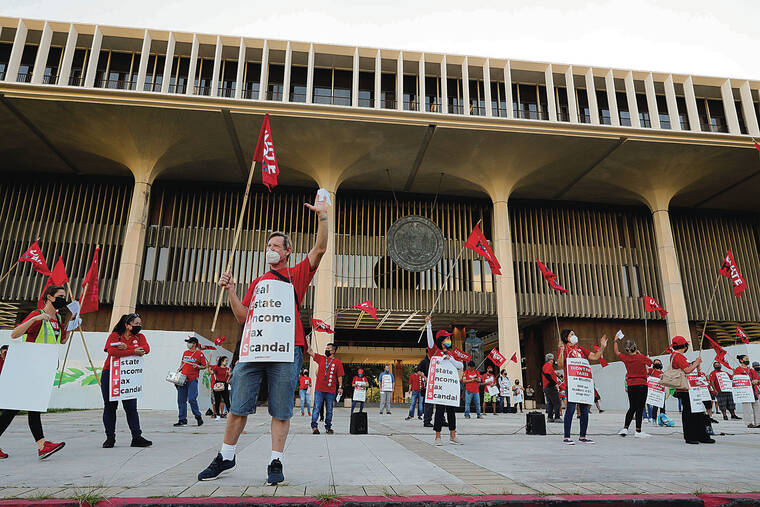Hawaii hotel workers rally for bill to eliminate tax exemption

JAMM AQUINO / JAQUINO@STARADVERTISER.COM
About 150 members of Local 5 showed up in support of a bill that would eliminate a tax exemption for companies that own hotels and other commercial real estate in Hawaii. Above, Local 5 member and hotel worker Ken Prohaska joined fellow members at Thursday’s rally at the state Capitol.

JAMM AQUINO / JAQUINO@STARADVERTISER.COM
About 150 members of Local 5 showed up in support of a bill that would eliminate a tax exemption for companies that own hotels and other commercial real estate in Hawaii. Above, Local 5 member Lisa Grandinetti, left, hugged fellow members.

JAMM AQUINO / JAQUINO@STARADVERTISER.COM
Hawaii lawmakers have considered bills to amend state tax policy on REITs every year since 2014 but haven’t had a single bill become law. Above, Local 5 members held signs during Thursday’s rally at the state Capitol.

JAMM AQUINO / JAQUINO@STARADVERTISER.COM
Hawaii lawmakers have considered bills to amend state tax policy on REITs every year since 2014 but haven’t had a single bill become law. Above, member and hotel worker Audrey Gecain waved a sign on the sidewalk in front of the Capitol.





Select an option below to continue reading this premium story.
Already a Honolulu Star-Advertiser subscriber? Log in now to continue reading.